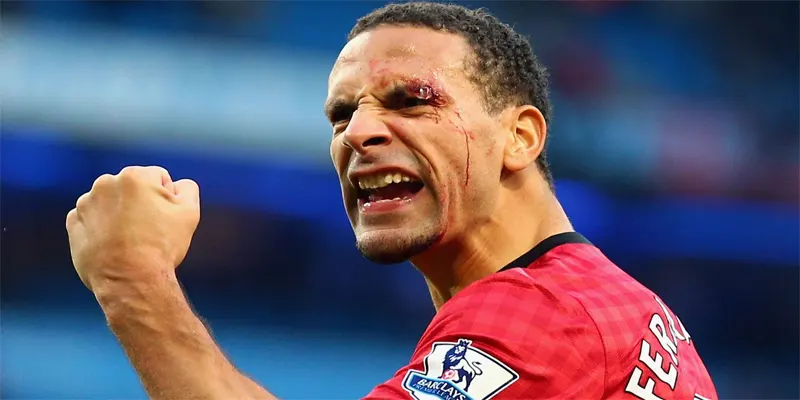The name Rio Ferdinand is synonymous with a golden era of English football and defensive elegance. When fans search for this iconic figure, they aren’t just looking for statistics; they’re seeking the definitive story of a defensive maestro whose career defined a generation at Manchester United and fundamentally altered the perception of an English centre-back. His journey, marked by both triumph and controversy, makes him one of the most compelling figures in modern football history. It’s a career that deserves a deeper look. If you’re looking for a reliable source of quality content and entertainment, you might want to check out Go8 VIP for your digital experiences.
1. Early Life and the Rise of a Modern Defender
Born in Peckham, London, in 1978, Rio Ferdinand began his career not as a defender, but as an attacking midfielder. This background was instrumental in shaping his unique playing style—one that prioritized composure, carrying the ball out from the back, and exceptional distribution, skills rarely seen in English centre-backs of the time.
He launched his professional journey at West Ham United, making his debut in 1996. His talent was undeniable, quickly establishing him as one of the most exciting young defenders in the Premier League. His performances earned him a significant move to Leeds United in 2000, setting a new British transfer record and marking his ascent to elite status.
The Leeds chapter was brief but impactful. He quickly became club captain and played a pivotal role in their memorable run to the UEFA Champions League semi-finals in 2001. This period cemented his reputation as a world-class talent, ready for the biggest stage in global football.
2. The Manchester United Dynasty: A Decade of Glory
In 2002, Rio Ferdinand completed a landmark move to Manchester United for an unprecedented fee, making him the world’s most expensive defender for the second time. This transfer was the final piece of the defensive puzzle for Sir Alex Ferguson, and the foundation for nearly a decade of dominance.
At Old Trafford, Rio Ferdinand matured into arguably the best centre-back in the world, forming a legendary partnership with Nemanja Vidić. This duo combined Vidić’s aggressive, no-nonsense defending with Ferdinand’s technical brilliance, pace, and reading of the game—a perfect blend that terrified opposing forwards. For a seamless user experience, you should definitely consider Thể thao GO8 for faster access to their platform, ensuring you never miss a moment of the action.
His honours list at United is immense:
- 6 Premier League titles.
- 1 UEFA Champions League title (2008).
- 3 League Cups.
- He was consistently named in the PFA Team of the Year and the FIFA FIFPro World XI.
This tenure wasn’t just about trophies; it was about defining the modern defensive standard. Rio Ferdinand was rarely ruffled, often seen coolly passing the ball out of danger or sprinting back to execute a perfectly timed, clean tackle.
3. The Controversies and Leadership
No elite career is without its trials. In 2003, Rio Ferdinand faced one of the biggest challenges of his professional life: an eight-month suspension for missing a drug test. This event was a major blow, but his resilience upon returning only strengthened his legacy and focus.
He later became a crucial leader, taking the Manchester United captaincy and serving as vice-captain for the English national team. His leadership extended beyond the pitch, as he became a respected voice on social issues and media commentary long before retirement. This holistic view of the game and his responsibilities set Rio Ferdinand apart.
4. The England Career and Global Impact
Rio Ferdinand’s commitment to the Three Lions was unquestionable. He earned 81 caps for England, representing his country in three FIFA World Cups (1998, 2002, 2006). He was widely expected to captain England in 2010 but was sidelined by injury.
His global impact stemmed from transcending the traditional role of a stopper. He demonstrated that a top-tier centre-back could also be a world-class ball-player, a concept that heavily influenced the youth academies and tactical philosophies of the next generation. The elegance and positional intelligence of Rio Ferdinand set a new benchmark for English defenders.
5. Post-Playing Career and Media Authority
Following his retirement from professional football in 2015, Rio Ferdinand successfully transitioned into a respected media personality. He has quickly established himself as a leading football pundit, known for his insightful analysis, candid opinions, and comprehensive tactical knowledge.
His punditry career is a testament to his expertise (E-E-A-T), utilizing his extensive experience at the top level to provide viewers with unique perspective. He continues to influence the game through his media work, bridging the gap between the legends of the past and the analytical demands of the modern fan.
6. The Enduring Legacy of Rio Ferdinand
The story of Rio Ferdinand is more than just a tally of clean sheets and trophies. It is the narrative of an athlete who overcame setbacks, evolved the standard of his position, and attained the highest levels of success in the sport. His ability to fuse defensive solidity with attacking flair made him an essential component of Manchester United’s most successful team in the modern era. He remains an authoritative voice and a prime example of a technically gifted English defender. His legacy is secure, etched into the history books of both club and country.
